Bitcoin vs Venmo
May 26, 2023 | Author: Sandeep Sharma
2

Open source P2P money. Bitcoin uses peer-to-peer technology to operate with no central authority or banks; managing transactions and the issuing of bitcoins is carried out collectively by the network. Bitcoin is open-source; its design is public, nobody owns or controls Bitcoin and everyone can take part. Through many of its unique properties, Bitcoin allows exciting uses that could not be covered by any previous payment system.
11
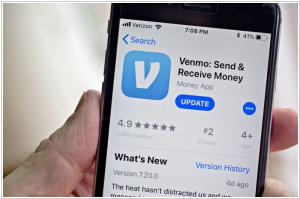
Venmo is a service of PayPal that allows to make and share payments. Venmo uses bank-grade security systems and data encryption to protect you and prevent against any unauthorized transactions or access to your personal or financial information. Sending money on Venmo is completely free as long as you use a bank account, supported debit card, or Venmo balance to fund your payments.
Bitcoin and Venmo are two distinct payment systems with different underlying principles and functionalities. Bitcoin is a decentralized cryptocurrency that operates on a peer-to-peer network, allowing users to send and receive digital payments directly without intermediaries. It offers a borderless, transparent, and potentially anonymous method of transferring value, with transactions recorded on a public ledger called the blockchain. On the other hand, Venmo is a mobile payment app that focuses on facilitating peer-to-peer transactions among friends and acquaintances. It provides a social payment experience, allowing users to split bills, share expenses, and make informal payments within a social feed-like interface. Venmo is linked to traditional fiat currency and is widely accepted by merchants, while Bitcoin operates independently of any government or central authority.
See also: Top 10 Online Payment platforms
See also: Top 10 Online Payment platforms
Bitcoin vs Venmo in our news:
2014. Microsoft begins accepting Bitcoin in the Windows Store
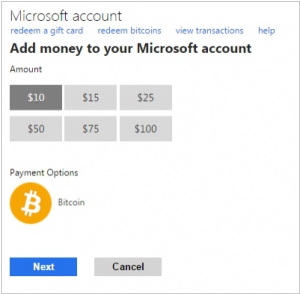
Microsoft has introduced the option to use Bitcoin as a form of payment for purchasing games and other digital content on its Windows, Windows Phone, and Xbox platforms. To facilitate this, Microsoft has partnered with the payment provider Bitpay. However, there are a few important points to consider. While customers can utilize Bitcoin to add funds to their Microsoft wallet or create digital gift cards, direct payments with the cryptocurrency are not currently supported. Additionally, it appears that Bitcoin payments are limited to customers in the United States. Historically, Microsoft has been viewed as a slow-moving behemoth, somewhat resistant to change. Although accepting Bitcoin does not directly align with its recent surprising efforts to make core services like Office available on competing platforms or implement premium pricing models, it does demonstrate that Microsoft is willing to embrace emerging technologies ahead of many of its competitors. This suggests a potential modernization of Microsoft's overall approach and ethos.
2014. Visa Exec: we could support Bitcoin payments

According to Visa CEO Charlie Scharf, while the company is not currently actively engaging with developments in the bitcoin space, it remains open to the possibility of doing so in the future, should the need arise. Scharf emphasized that Visa's primary focus is as a network rather than a currency, stating that they have the capability to process both real and virtual currencies if it is deemed appropriate. However, he clarified that the company is not currently considering facilitating bitcoin payments. Scharf also expressed Visa's lack of interest in creating a Visa-branded digital currency, unlike some of its competitors who have pursued digital currency-related patent filings.
2014. BitPay makes bitcoin payment processing free
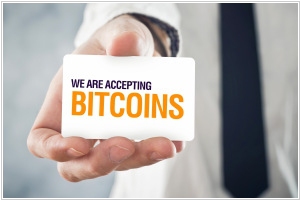
BitPay, the pioneering BitCoin payment processing company, has made an exciting announcement by eliminating the 1 percent transaction fee on all starter plans. This means that merchants who choose the starter plan can now enjoy free access to the BitPay API, app, and plugins, without any transaction costs. Additionally, there are no limitations on the number or amount of transactions within the plan. For those opting for the paid plans, various additional features are included, such as 24/7 phone support, personal account managers, and Quickbooks integration. BitPay's primary competitor, Coinbase, which handles payments for renowned companies like Expedia and Dell, follows a different pricing structure. Coinbase charges a one percent fee for cashing out bitcoin to a bank account, but this fee only applies after the first $1,000,000 in sales.
2014. Dell becomes the largest company that accepts Bitcoin
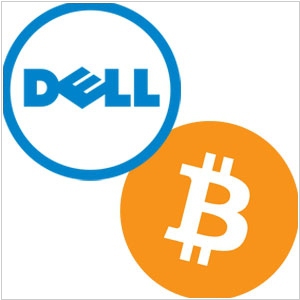
PC maker Dell has announced that it will now accept payments in Bitcoin for products purchased through its website. Additionally, customers using the cryptocurrency can enjoy a 10 percent discount on select items. Coinbase, a prominent bitcoin payment processor, has secured this business opportunity. When customers opt for bitcoin as their payment method on Dell's website, they will be redirected to Coinbase's platform to complete the transaction, following a standard procedure. This move by Dell represents a significant step towards mainstream acceptance of bitcoin. With sales amounting to nearly $57 billion in 2013, Dell would become the largest company to embrace bitcoin as a payment option.
2014. Google and Microsoft add Bitcoin to their currency convertors
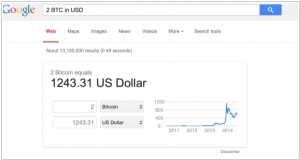
A fascinating trick in Google search involves typing "5 Euro in USD" to obtain a reasonably accurate currency conversion within seconds. Now, an exciting update allows you to explore the world of Bitcoin by simply entering "price of bitcoin" or "X bitcoin to euro" in your search query. This feature was recently introduced as a response to Microsoft Bing's inclusion of BTC pricing in their search engine. Google has collaborated with Coinbase to facilitate BTC conversions. This capability to incorporate Bitcoin in search queries builds upon Google Finance's introduction of a dedicated bitcoin page on their website back in June of last year.
2014. Shopify allows to accept payments in Bitcoin

The popular online store platform, Shopify, had previously offered support for the bitcoin merchant service BitPay since November. However, in a recent announcement, Shopify unveiled that its users now have the option to accept bitcoin payments via Coinbase as well. This development creates a competitive dynamic between the two payment processors. By integrating both companies into its platform, Shopify recognizes that each has its own strengths and weaknesses. The key aspect is that businesses using Shopify now have the flexibility to choose between these two options. It is crucial for the growth of the bitcoin economy to prevent the emergence of a monopoly. By offering consumers a choice, the accessibility of bitcoin can be expanded to a wider audience. Ultimately, fostering healthy competition between these payment processors can prove beneficial for all stakeholders involved.


